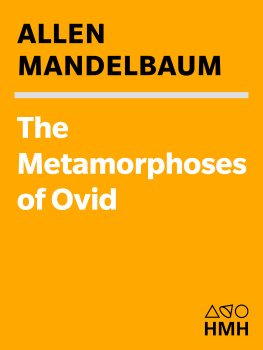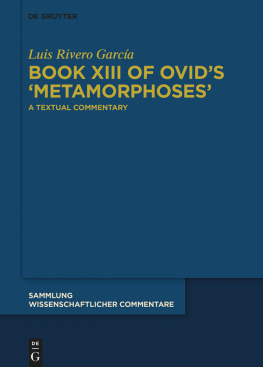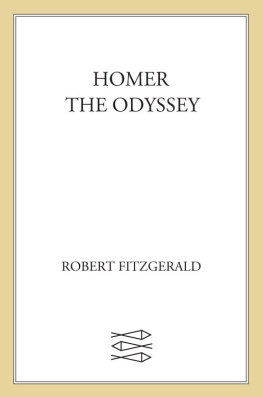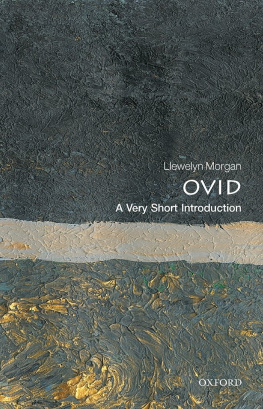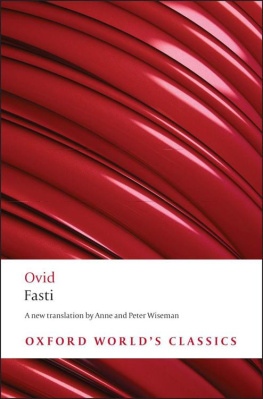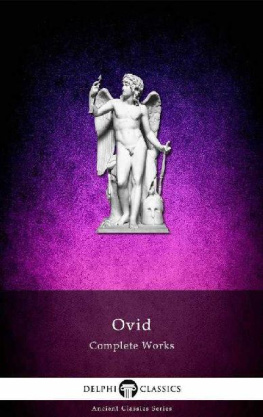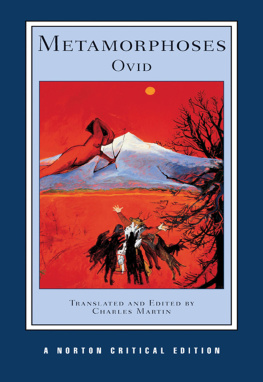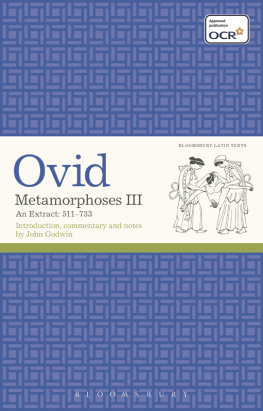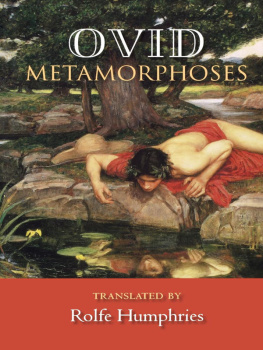English translation copyright 1993 by Allen Mandelbaum The original work The Metamorphoses of Ovid appears in the public domain. All rights reserved. No part of this publication may be reproduced or transmitted in any form or by any means, electronic or mechanical, including photocopy, recording, or any information storage and retrieval system, without permission in writing from the publisher. For information about permission to reproduce selections from this book, write to or to Permissions, Houghton Mifflin Harcourt Publishing Company, 3 Park Avenue, 19th Floor, New York, New York 10016. www.hmhco.com Detail of From the Garden from the Lighner Museum Series 1993 Anna Tomczak/Swanstock My Eyes from Ovid in Sicily translated by Allen Mandelbaum, copyright 1986. Reprinted by permission of The Sheep Meadow Press.
Excerpts from Savantasse of Montparnasse translated by Allen Mandelbaum, copyright 1987. Reprinted by permission of The Sheep Meadow Press. The Library of Congress has cataloged the print edition as follows: Ovid, 43 B.C. 17 or 18 A.D. [Metamorphoses. (A Harvest Book)
p. cm. cm.
ISBN 0-15-170529-1
ISBN 0-15-600126-8
ISBN 978-0-15-600126-7 1. MetamorphosesMythologyPoetry. 2. Mythology, ClassicalPoetry. I. Title. Title.
PA6522.M2M36 1993
873'.01dc20 93-8118 e ISBN 978-1-328-78728-6
v1.1116 This translation of
Ovids seamless song is inscribed to
my brother in law and in love,
Leonard Feldman,
and my sister, Rayma.
BOOK I
Prologue
M Y SOUL WOULD SING of metamorphoses. But since, o gods, you were the source of these bodies becoming other bodies, breathe your breath into my book of changes: may the song I sing be seamless as its way weaves from the worlds beginning to our day.
The Creation
Before the sea and lands began to be, before the sky had mantled every thing, then all of natures face was featureless what men call chaos: undigested mass of crude, confused, and scumbled elements, a heap of seeds that clashed, of things mismatched. There was no Titan Sun to light the world, no crescent Moonno Phoebeto renew her slender horns; in the surrounding air, earths weight had yet to find its balanced state; and Amphitrites arms had not yet stretched along the farthest margins of the land. For though the sea and land and air were there, the land could not be walked upon, the sea could not be swum, the air was without splendor: no thing maintained its shape; all were at war; in one same body cold and hot would battle; the damp contended with the dry, things hard with soft, and weighty things with weightless parts. A godand nature, now become benign ended this strife.
He separated sky and earth, and earth and waves, and he defined pure air and thicker air. Unraveling these things from their blind heap, assigning each its placedistincthe linked them all in peace. Fire, the weightless force of heavens dome, shot up; it occupied the highest zone. Just under fire, the light air found its home. Latin [128] The earth, more dense, attracted elements more gross; its own mass made it sink below. And flowing water filled the final space; it held the solid world in its embrace.
When hewhichever god it wasarrayed that swarm, aligned, designed, allotted, made each part into a portion of a whole, then he, that earth might be symmetrical, first shaped its sides into a giant ball. He then commanded seas to stretch beneath high winds, to swell, to coil, to reach and ring shorelines and inlets. And he added springs and lakes and endless marshes and confined descending streams in banks that slope and twine: these rivers flow across their own terrains; their waters sink into the ground or gain the sea and are received by that wide plain of freer watersthere, they beat no more against their banks, but pound the shoals and shores. At his command, the fields enlarged their reach, the valleys sank, the woods were clothed with leaves, and rocky mountains rose. And as the sky divides into two zones on its right side, with just as many to the left, to which the hottest zone is added as a fifth, the god provided regions that divide the mass the heavens wrap, and he impressed as many zones upon the earth. Of these, the middle zone, because of its fierce heat, is uninhabitable; and thick snows cover two outer zones; between them he aligned two other regions, and to these he gave a clement climate, mixing heat and cold.
Above, the air extends; and for as much as earth is heavier than water, so is the air more ponderous than fire. He ordered fog and clouds to gather there Latin [2954] in airand thunder, which would terrify the human mind; there, too, the god assigned the winds that, from colliding clouds, breed lightning. Yet he who was the worlds artificer did not allow the winds to rule the air unchecked, set free to riot everywhere. (But while each wind received a separate tract, it still is difficult to curb their blasts, to keep the world, which they would rend, intact: though they are brothers, they forever clash.) Eurus retreated toward Auroras lands, into the Nabataeans kingdom and to Persia, where the rays of morning meet the mountain crests. And Zephyrus now went to shorelines warm with sunset, in the west. To Scythia, beneath the northern Wain, swept horrid Boreas.
Incessant rain and mists that drench the southlands opposite this was the work of Auster. The god placed above these winds the ether, without weight, a fluid free of earths impurity. No sooner had he set all things within defining limits than the stars, long hid beneath the crushing darkness, could begin to gleam throughout the heavens. That no region be left without its share of living things, stars and the forms of gods then occupied the porch of heaven; and the waters shared their dwelling with the gleaming fishes; earth received the beasts, and restless air, the birds. An animal with higher intellect, more noble, ableone to rule the rest: such was the living thing the earth still lacked. Then man was born.
Either the Architect of All, the author of the universe, Latin [5579] in order to beget a better world, created man from seed divineor else Prometheus, son of Iapetus, made man by mixing new-made earth with fresh rainwater (for earth had only recently been set apart from heaven, and the earth still kept seeds of the skyremains of their shared birth); and when he fashioned man, his mold recalled the masters of all things, the gods. And while all other animals are bent, head down, and fix their gaze upon the ground, to man he gave a face that is held high; he had man stand erect, his eyes upon the stars. So was the earth, which until then had been so rough and indistinct, transformed: it wore a thing unknown beforethe human form.
The Four Ages
That first age was an age of gold: no law and no compulsion then were needed; all kept faith; the righteous way was freely willed. There were no penalties that might instill dark fears, no menaces inscribed upon bronze tablets; trembling crowds did not implore the clemency of judges; but, secure, men lived without defenders. In those times, upon its native mountain heights, the pine still stood unfelled; no wood had yet been hauled down to the limpid waves, that it might sail to foreign countries; and the only coasts that mortals knew in that age were their own.
The towns were not yet girded by steep moats; there were no curving horns of brass, and no brass trumpetsstraight, unbent; there were no swords, no helmets. No one needed warriors; the nations lived at peace, in tranquil ease. Earth of itselfand uncompelleduntouched Latin [79101] by hoes, not torn by ploughshares, offered all that one might need: men did not have to seek: they simply gathered mountain strawberries and the arbutus fruit and cornel cherries; and thick upon their prickly stems, blackberries; and acorns fallen from Joves sacred tree. There spring was never-ending. The soft breeze of tender zephyrs wafted and caressed the flowers that sprang unplanted, without seed. The earth, untilled, brought forth abundant yields; and though they never had lain fallow, fields were yellow with the heavy stalks of wheat.
Next page
